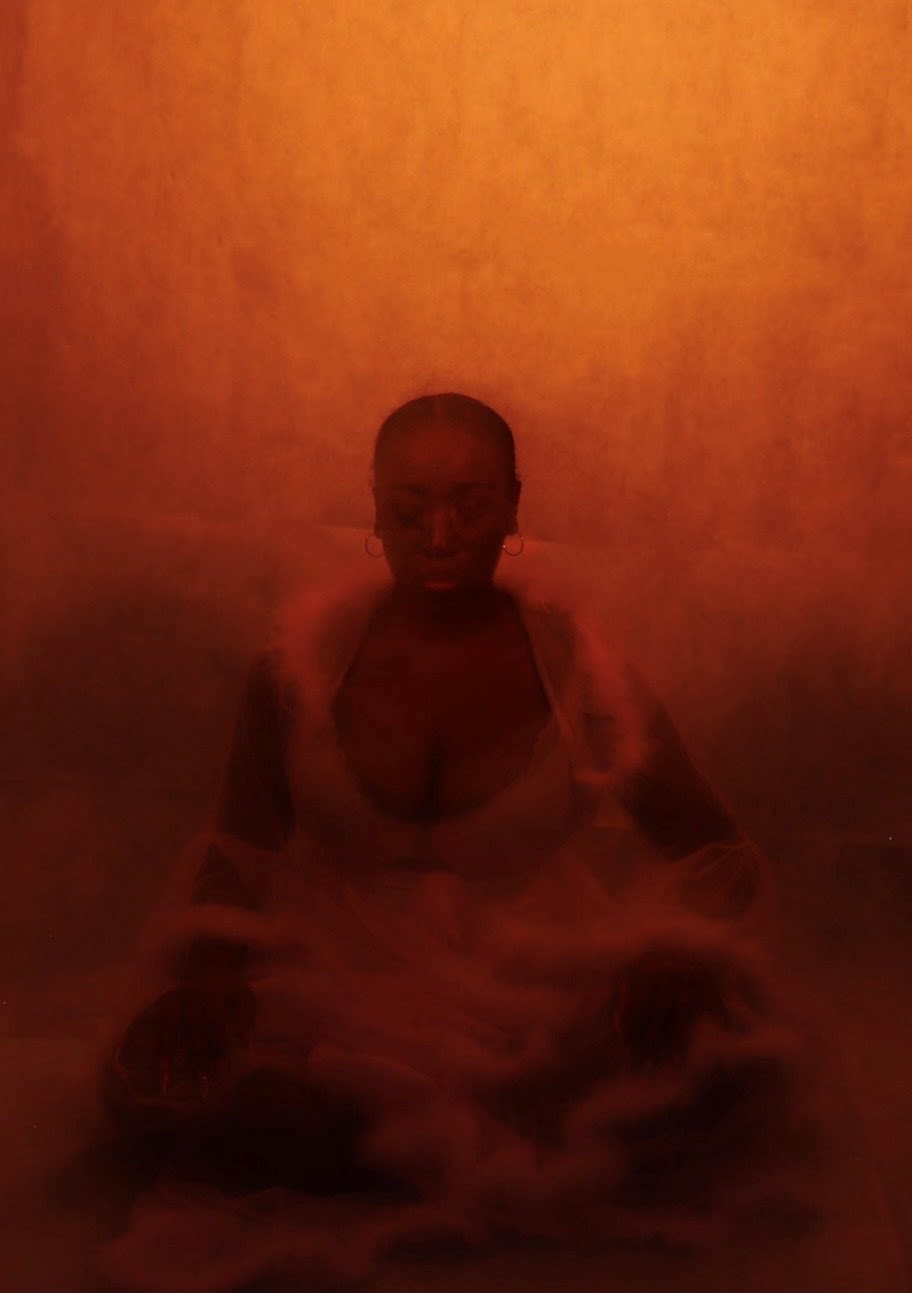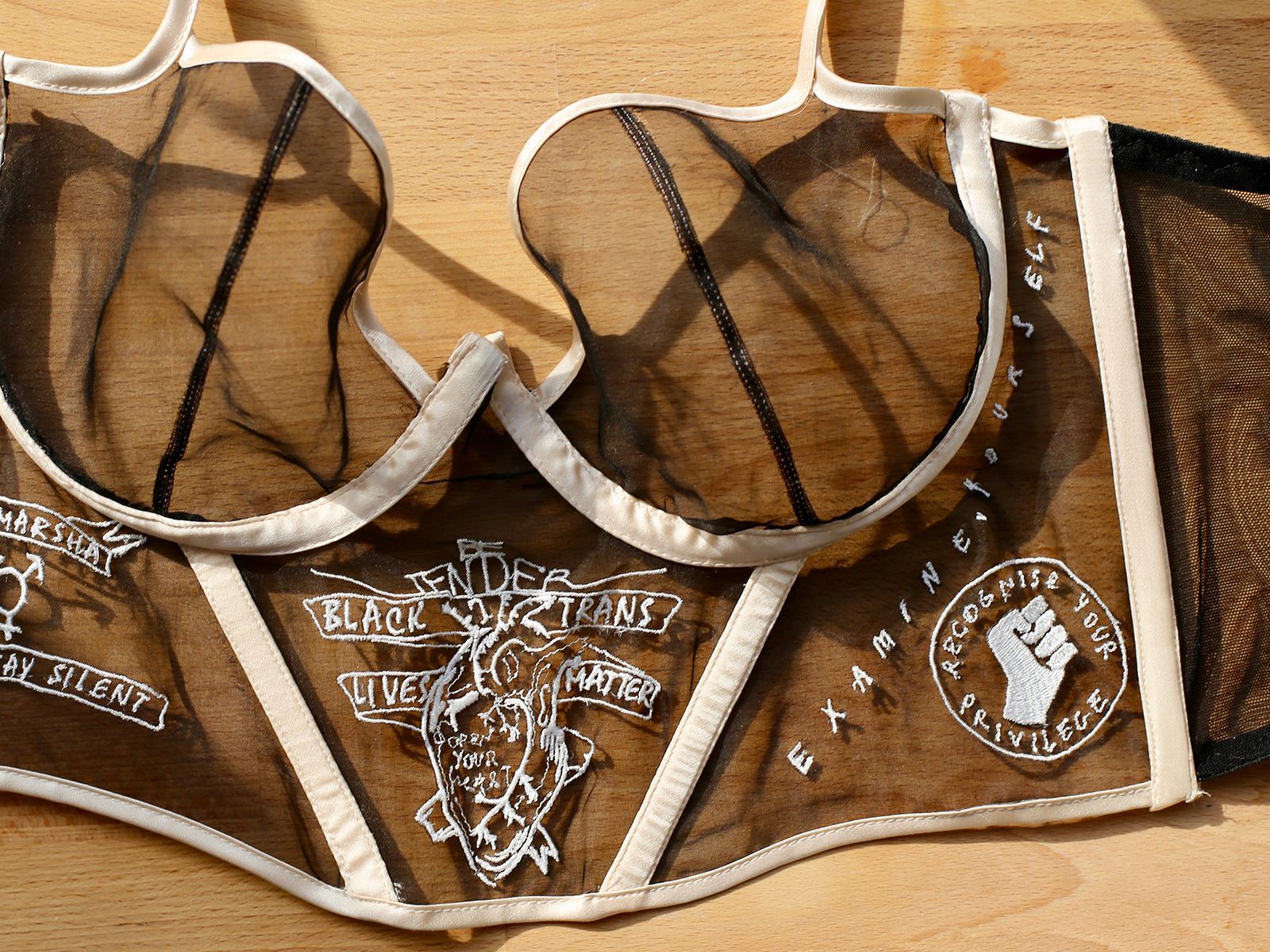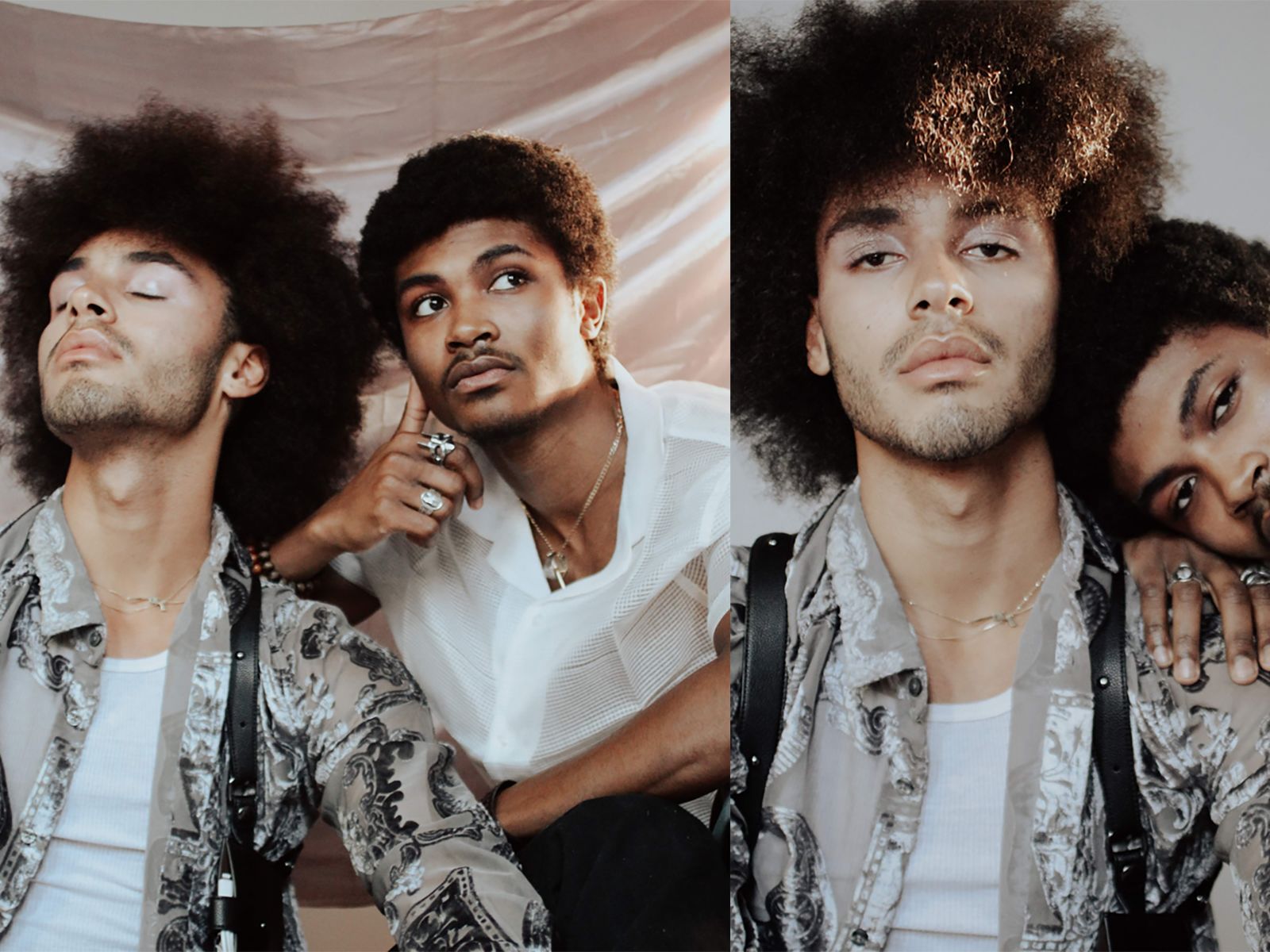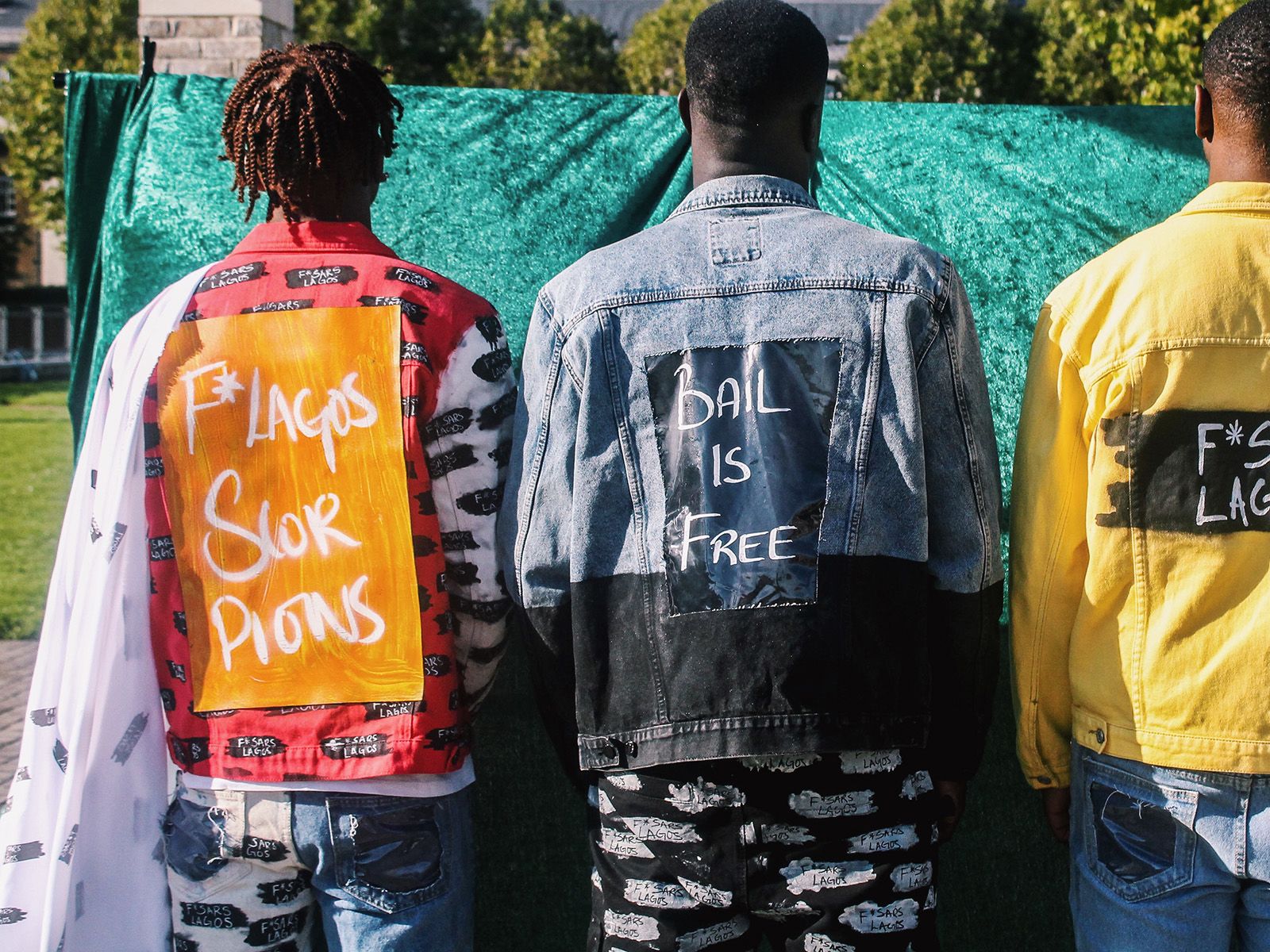
Black History Month 2021: Roisin Cummins in conversation with Satori Cascoe

- Written byRóisín Cummins
- Published date 24 October 2021

As part of LCF's Black History Month celebrations, we wanted to create a space and platform for students and alumni to have open and frank conversations around their experiences at LCF and within the fashion industry, through a series of 'in conversations' with LCF BA (Hons) Fashion Design and Technology: Womenswear alumna, Róisín Cummins.
Róisín showcased her final collection in the #LCF19 show and has since continued to use her creative ideas as a voice for change, and has worked with LCF on a variety of projects. In the first of three stories, Rosin is in conversation with.Satori Cascoe from BA (Hons) Fashion Photography.
Satori, please could you introduce yourself and your creative work?
My name is Satori and I’m a photographer from South East London. My journey as a photographer and creative happened very organically, before coming to LCF I had never been taught photography but always really loved it. I came from a more technical side as I studied digital design which taught me to use different software. When I was 15 I did work experience in a photography studio near where I lived and became the retoucher there. I have now worked there for the past 4 years and it’s allowed me to get first-hand experience in how a studio works, which has definitely had a positive impact on my creative journey thus far. I would say I’m quite a studio-based photographer/image maker currently, but I intend to shoot more on location this year and in the future.
As a creative person of colour, how have you found studying fashion photography at LCF? Do you think you have a different experience from others?
Honestly, before coming to LCF I heard many mixed reviews, when I initially started I did feel there was definitely a noticeable difference in the ratio of students of colour to the others, and this did make me feel somewhat out of place. Throughout history the photography industry specifically has always been extremely male dominated and white washed, and as a young black photographer this is always something I’ve been aware of. I feel so far, I have been extremely lucky and do not feel that the colour of my skin has affected the way I have been treated in both uni and the creative world as a whole. I have been fortunate enough to be surrounded by amazing talent and creatives that are also like me, I feel like this generation lets our work speak for itself and we are unapologetically ourselves, and I definitely feel that is how I am.

I have seen a lot of your photography and I personally think it’s incredible and speaks a lot to the viewer, your latest work “Blue Series” is captivating. What was the inspiration behind it, could you tell us more about it?
Thank you so much - I really appreciate that! As a photographer and image maker I always like to leave a sense of ambiguity in my work, I like it to be left up to interpretation. ‘The Blue Series’ wasn’t something I planned and quite spontaneous, I had a photo that incorporated blue gel on one of my mood boards for this specific shoot and I kind of just ran with it. In one of the photos you can see I made the model face away from the camera, and I’ve only recently noticed I do that a lot in my work. When I ask a model to turn away from the camera or put their back to me, subconsciously it makes me work harder, it makes me pay more attention to the lighting or the colours in the photo or what my model is wearing or even the texture of hair they have, when I take away the emotion that is brought by someone's face I am forced to work with other things.
Your work has been published in many different magazines and you have done multiple virtual talks in collaboration with other creatives, as a black woman do you think you have had to work harder and push more for these opportunities?
I believe being black and a woman in a world and industry that has not always championed us or wanted us to be a part of it, there is a pressure to always be on the ball. Being a photographer, like many other creative jobs comes with its own stresses as it is so competitive. I feel as a black woman there is an added pressure of creating work that has meaning or substance, creating work that forces people to think and in that sense, I would say we have to work harder and feel this sense of responsibility with everything we do. However, in terms of pushing for opportunities, like I have mentioned before I have been fortunate enough to be surrounded by some really amazing people and these amazing people look just like me! Black creatives are really doing their thing right now and I can say I have so many inspiring people in my life that work so hard to make sure black upcoming talent like myself don’t have to push as hard anymore to be noticed. A lot of the opportunities I’ve had, have come just from my own hard work but a lot of it has come from amazing beautiful people in my life.
What do you think when you hear of Black History Month?
When I think of Black History Month, I don’t only think of Martin Luther King and Rosa Parks – as I have grown older, I think of how amazing talented and smart black people are and how fortunate I am to come from such an enriched and loving culture – it’s a time for celebration. I love Black History Month as it’s a time to focus on us, the amazing things we have done and the amazing things we are going to do with no excuses, or interruptions!
Will you be doing anything to celebrate and showcase Black History Month?
I most certainly will! I have a platform called wmn online with one of my close friends, Shenell Kennedy, and we have been on an extremely long hiatus as we have been trying to figure out what direction we want to go in. To celebrate Black History Month, we are going to come back and showcase some amazing black female creatives in all their glory!

Do you feel Black History Month is a time that you feel best represented?
I can’t wholeheartedly say I do, as I do feel some people genuinely don’t understand its significance or importance. However, with that being said, I do feel it’s a time when I feel extremely confident and united and unapologetically myself.
Have you ever faced racism within the industry and how have you overcome it?
I would say I have definitely been subjected to racist micro aggressions within the industry but never anything blatantly racist or directed at me because of my race. Racist micro aggressions can be just as dangerous as they come off light-hearted and playful, I genuinely overcome it by being very upfront and speaking my mind if I feel something is wrong or out of line. Again, I have been very fortunate in the sense I have never been afraid to call someone out if I think something is wrong.
Does your heritage and background ever come into play when you are creating your work?
I would say in the beginning of my practice it was more subconscious but now I definitely make conscious decisions to make my work more personal by incorporating my background and heritage as and when I see fit. At the end of the day, what I come from and who I am is how I am able to create such personal work and work that I feel is authentic to me. I never put pressure on myself to create work with meaning, I truthfully just create what feels right in the moment, and elements of me comes through regardless.
How do you think we can best combat racism within the fashion industry? Do you think there is enough going on to make things more inclusive?
I feel like more can always be done. There needs to be more POC and more specifically black people in positions of power, we need to create our own things instead of trying to fit into a deep-rooted racist industry. The fashion industry as a whole is so complex and I genuinely feel we should stop trying to understand it, we have all the power we need, as black people we need to work together. I personally am tired of waiting for white peoples to accept us, it’s at a point where we should no longer be wanting their acceptance, take us or leave us but if we work together we will win regardless, and reach the places we want to. I wholeheartedly believe that.
As creatives, we often find it challenging to ensure our work is perceived in the way we would hope or have set out. How do you explore sensitive subjects within photography?
I think it’s extremely important to handle certain topics and discussions with the utmost care. As a photographer I know my photos tell stories and this is what I intend for them to do, whenever I feel I am exploring a sensitive topic I always try to make sure I understand my intentions before shooting and what I want my message to be, I truthfully just plan ahead and always remember my goals and intentions.
What would you say to your younger self about taking this creative path within the fashion industry?
Amazing question! I feel because I am still quite young this is quite difficult but looking back I would tell myself what is meant to be will be, what is meant for me will be mine and no one can take it away. Being a creative is beautiful and freeing and I would just tell myself to enjoy the journey as there’s a lifetime of things to learn.


